Peugeot 508 vs Porsche Panamera - Differences and prices compared
Costs and Efficiency:
Price and efficiency are key factors when choosing a car – and this is often where the real differences emerge.
Peugeot 508 has a decisively advantage in terms of price – it starts at 44600 £, while the Porsche Panamera costs 99800 £. That’s a price difference of around 55200 £.
Fuel consumption also shows a difference: Peugeot 508 manages with 1.60 L and is therefore decisively more efficient than the Porsche Panamera with 3 L. The difference is about 1.40 L per 100 km.
As for range, the Porsche Panamera performs clearly better – achieving up to 97 km, about 42 km more than the Peugeot 508.
Engine and Performance:
Power, torque and acceleration are the classic benchmarks for car enthusiasts – and here, some clear differences start to show.
When it comes to engine power, the Porsche Panamera has a clearly edge – offering 782 HP compared to 360 HP. That’s roughly 422 HP more horsepower.
In acceleration from 0 to 100 km/h, the Porsche Panamera is significantly quicker – completing the sprint in 2.90 s, while the Peugeot 508 takes 5.20 s. That’s about 2.30 s faster.
In terms of top speed, the Porsche Panamera performs distinct better – reaching 325 km/h, while the Peugeot 508 tops out at 250 km/h. The difference is around 75 km/h.
There’s also a difference in torque: Porsche Panamera pulls decisively stronger with 1000 Nm compared to 520 Nm. That’s about 480 Nm difference.
Space and Everyday Use:
Cabin size, boot volume and payload all play a role in everyday practicality. Here, comfort and flexibility make the difference.
Seats: Peugeot 508 offers a bit more seating capacity – 5 vs 4.
In curb weight, Peugeot 508 is barely noticeable lighter – 1811 kg compared to 1960 kg. The difference is around 149 kg.
In terms of boot space, the Porsche Panamera offers minimal more room – 494 L compared to 487 L. That’s a difference of about 7 L.
In maximum load capacity, the Peugeot 508 performs minimal better – up to 1537 L, which is about 152 L more than the Porsche Panamera.
When it comes to payload, Porsche Panamera to a small extent takes the win – 545 kg compared to 469 kg. That’s a difference of about 76 kg.
Who wins the race?
The Porsche Panamera proves to be leaves the rival little chance and therefore becomes our DriveDuel Champion!
Porsche Panamera is the better all-rounder in this comparison.
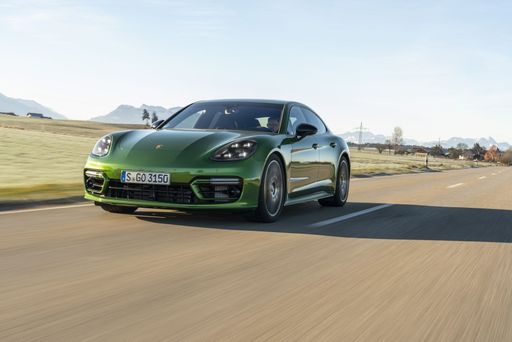 @ Dr. Ing. h.c. F. Porsche AG
@ Dr. Ing. h.c. F. Porsche AG
Porsche Panamera
Costs and Consumption
View detailed analysis
Engine and Performance
View detailed analysis
Dimensions and Body
View detailed analysis
Peugeot 508
The Peugeot 508 turns heads with a low-slung, almost coupe-like silhouette and a cabin that feels grown-up and surprisingly premium for the money. On the road it balances comfort and poise with a playful edge, making it a convincing choice for buyers who want something stylish and sensible without shouting for attention.
details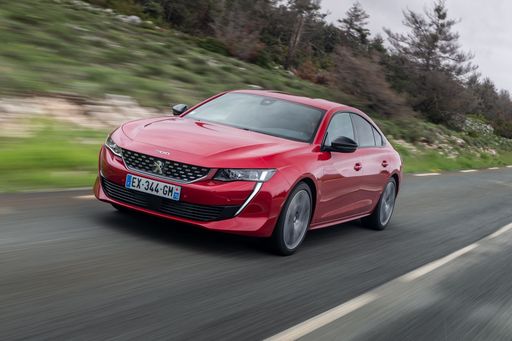 @ Peugeot / Stellantis Media
@ Peugeot / Stellantis Media
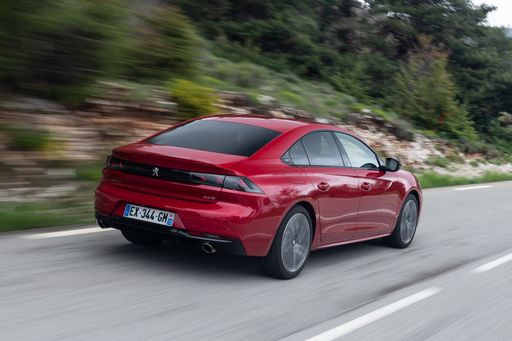 @ Peugeot / Stellantis Media
@ Peugeot / Stellantis Media
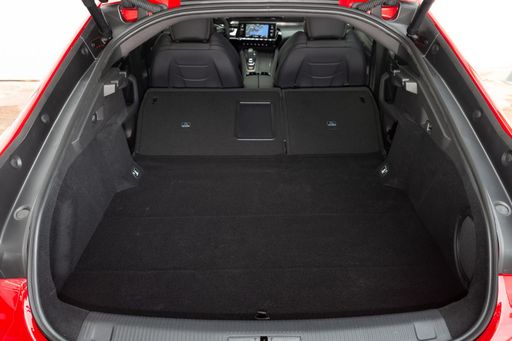 @ Peugeot / Stellantis Media
@ Peugeot / Stellantis Media
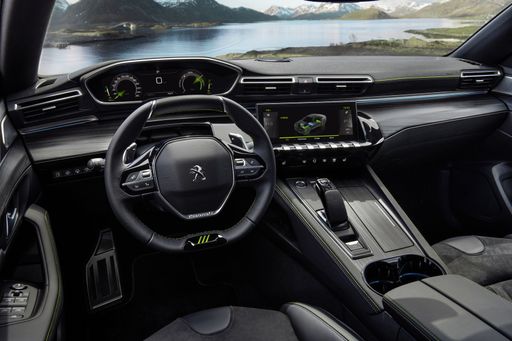 @ Peugeot / Stellantis Media
@ Peugeot / Stellantis Media
Porsche Panamera
The Porsche Panamera blends sports-car sharpness with luxury-sedan refinement, serving driving thrills up front while pampering passengers in the back. Poised, polished and mischievously quick, it’s the car for buyers who want exotic performance without losing everyday comfort.
details @ Dr. Ing. h.c. F. Porsche AG
@ Dr. Ing. h.c. F. Porsche AG
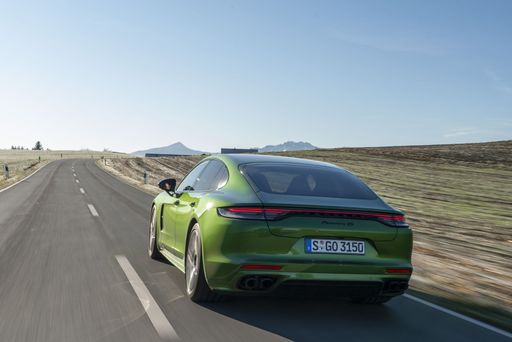 @ Dr. Ing. h.c. F. Porsche AG
@ Dr. Ing. h.c. F. Porsche AG
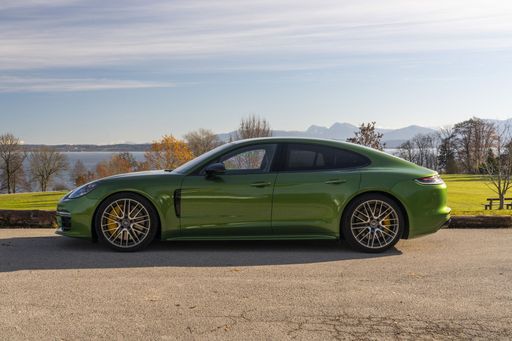 @ Dr. Ing. h.c. F. Porsche AG
@ Dr. Ing. h.c. F. Porsche AG
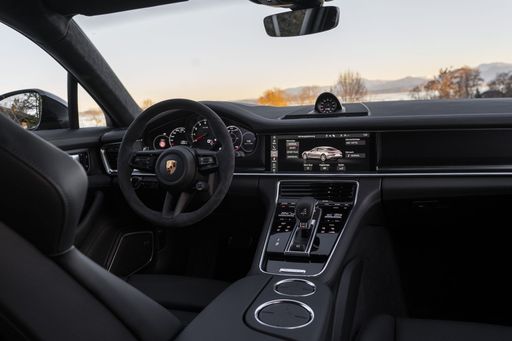 @ Dr. Ing. h.c. F. Porsche AG
@ Dr. Ing. h.c. F. Porsche AG
 @ Peugeot / Stellantis Media
@ Peugeot / Stellantis Media
|
 @ Dr. Ing. h.c. F. Porsche AG
@ Dr. Ing. h.c. F. Porsche AG
|
|
|
|
Costs and Consumption |
|
|---|---|
|
Price
44600 - 60800 £
|
Price
99800 - 212100 £
|
|
Consumption L/100km
1.6 - 2 L
|
Consumption L/100km
3 - 12 L
|
|
Consumption kWh/100km
-
|
Consumption kWh/100km
-
|
|
Electric Range
46 - 55 km
|
Electric Range
83 - 97 km
|
|
Battery Capacity
-
|
Battery Capacity
21.80 kWh
|
|
co2
36 - 45 g/km
|
co2
69 - 274 g/km
|
|
Fuel tank capacity
43 L
|
Fuel tank capacity
75 - 90 L
|
Dimensions and Body |
|
|---|---|
|
Body Type
Hatchback
|
Body Type
Hatchback
|
|
Seats
5
|
Seats
4
|
|
Doors
5
|
Doors
5
|
|
Curb weight
1811 - 1941 kg
|
Curb weight
1960 - 2535 kg
|
|
Trunk capacity
487 L
|
Trunk capacity
421 - 494 L
|
|
Length
4750 mm
|
Length
5052 - 5204 mm
|
|
Width
1859 mm
|
Width
1937 mm
|
|
Height
1403 mm
|
Height
1415 - 1428 mm
|
|
Max trunk capacity
1537 L
|
Max trunk capacity
1255 - 1385 L
|
|
Payload
379 - 469 kg
|
Payload
340 - 545 kg
|
Engine and Performance |
|
|---|---|
|
Engine Type
Plugin Hybrid
|
Engine Type
Petrol, Plugin Hybrid
|
|
Transmission
Automatic
|
Transmission
Automatic
|
|
Transmission Detail
Automatic Gearbox
|
Transmission Detail
Dual-Clutch Automatic
|
|
Drive Type
Front-Wheel Drive, All-Wheel Drive
|
Drive Type
Rear-Wheel Drive, All-Wheel Drive
|
|
Power HP
180 - 360 HP
|
Power HP
353 - 782 HP
|
|
Acceleration 0-100km/h
5.2 - 8.2 s
|
Acceleration 0-100km/h
2.9 - 5.3 s
|
|
Max Speed
230 - 250 km/h
|
Max Speed
270 - 325 km/h
|
|
Torque
360 - 520 Nm
|
Torque
500 - 1000 Nm
|
|
Number of Cylinders
4
|
Number of Cylinders
6 - 8
|
|
Power kW
133 - 265 kW
|
Power kW
260 - 575 kW
|
|
Engine capacity
1598 cm3
|
Engine capacity
2894 - 3996 cm3
|
General |
|
|---|---|
|
Model Year
2024
|
Model Year
2025
|
|
CO2 Efficiency Class
B
|
CO2 Efficiency Class
G, B, C
|
|
Brand
Peugeot
|
Brand
Porsche
|
Is the Peugeot 508 offered with different drivetrains?
Available configurations include Front-Wheel Drive or All-Wheel Drive.
The prices and data displayed are estimates based on German list prices and may vary by country. This information is not legally binding.
